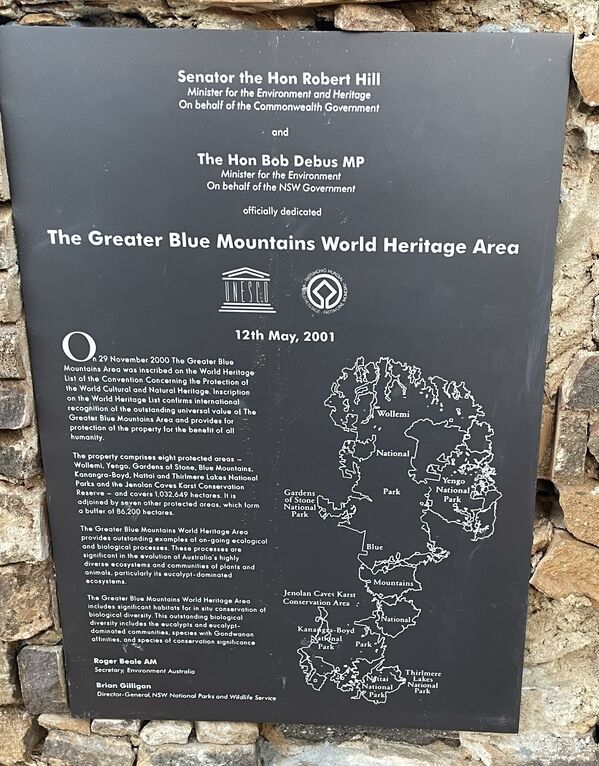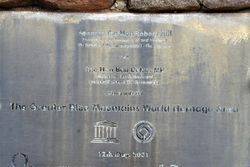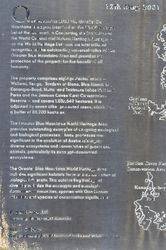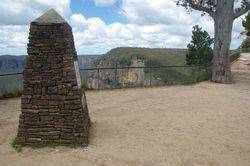
The Greater Blue Mountains World Heritage Area Print Page 
An area of one million hectares of vast, ancient and spectacular national park and wilderness, dominated by temperate eucalypt forest was formally inscribed on the World Heritage List on 29 November 2000 marking the formation of the Greater Blue Mountains World Heritage Area.
Location
| Address: | Govetts Leap Road, Obelisk, Govett`s Leap Lookout, Blackheath, 2875 |
|---|---|
| State: | NSW |
| Area: | AUS |
| GPS Coordinates: | Lat: -33.627975 Long: 150.311497 Note: GPS Coordinates are approximate. |
Details
| Monument Type: | Plaque |
|---|---|
| Monument Theme: | Culture |
| Sub-Theme: | Community |
Dedication
| Actual Monument Dedication Date: | Saturday 12th May, 2001 |
|---|
Senator the Hon Robert Hill Minister for the Environment and Heritage on behalf of the Commonwealth Government and the Hon Bob Debus MP Minister for the Environment on behalf of the NSW Government officially dedicated the Greater Blue Mountains World Heritage Area
12th May 2001
On 29 November 2000 The Greater Blue Mountains Area was inscribed on the World Heritage List of Convention Concerning the Protection of the World Cultural and Natural Heritage. Inscription on the World Heritage List confirms international recognition of the outstanding and universal value of the Greater Blue Mountains Area and provides the protection of the property for the benefit of all humanity.
The property comprises eight protected areas : - Wollami, Yengo, Gardens of Stone, Blue Mountains, Kanangra-Boyd, Nutta and Thirlmere Lakes National Parks and the Jenolan Caves Karst Conservation Reserve - and covers 1,032, 649 hectares. It is adjoined by seven other protected areas which form a buffer of 86,200 hectares.
The Greater Blue Mountains World Heritage Area provides outstanding examples of on-going ecological and biological processes. These processes are significant in the evolution of Australia's mighty diverse ecosystems and communities of plants and animals, particularly its eucalypt-dominated ecosystems.
The Greater Blue Mountains World Heritage Area includes significant habitats for in situ conservation of biological diversity. This outstanding biological diversity includes the eucalypts and eucalypt-dominated communities, species with Gondwanan affinities and species of conservation significance.








